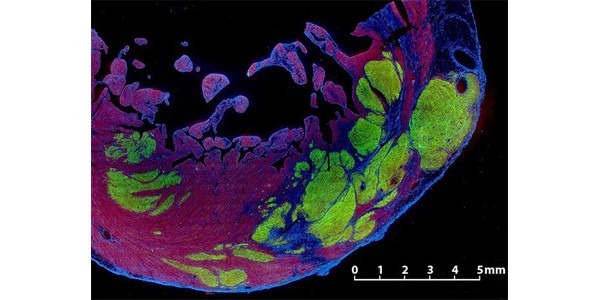Monkeys with heart failure regrew working heart muscle after receiving human stem cells, report a UW team led by Dr. Charles Murry, professor of bioengineering. In some cases, the animals regained 90 percent of their heart pumping power three months after treatment. The results appeared in the July 2 issue of Nature Biotechnology.
Heart disease is the leading cause of death for men and women in the United States. After a heart attack or other damage, the heart forms scar tissue, which cannot contract. The heart grows weaker and is unable to pump oxygen-rich blood efficiently.
The new study shows that human stem cells can grow into working muscle cells that integrate into the heart and “restore a significant amount of function,” Dr. Murry said in a UW Medicine news release. The study used macaque monkeys, whose physiology and heart size is similar to humans, suggesting the approach may also work in people with heart disease.
The UW team plans to begin human clinical trials of the method in 2020.
Dr. Murry is also director of UW’s Institute for Stem Cell and Regenerative Medicine and professor of pathology and of medicine in the Division of Cardiology. The lead authors on the paper are Drs. Yen-Wen Liu, Billy Chen and Xiulan Yang.
Learn more at UW Medicine: Stem cells restore function in primate heart-failure study
UW Medicine video: Heart Muscle Restored with Stem Cells


